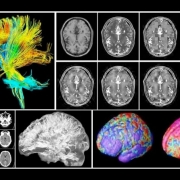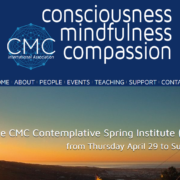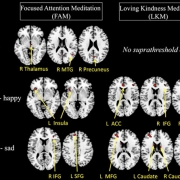Meditation improves telomerase activity
Meditation improves telomerase activity: a healthier life – but not for all!
Three months in a meditation retreat may have significant influence on a core marker of our health and biological age, a study found.
Some readers will be aware of the Shamatha project, where individuals with prior meditation experience took part in a 3-month intensive meditation retreat and were subjected to a range of different tests and analyses. Researchers on this project, guided by Alan Wallace as meditation teacher and Clifford Saron as scientific director, successively release their findings and one of the most interesting results links meditation practice to immune function and biological ageing. Investigating telomerase activity in the meditators and a control group, they found that telomerase activity was significantly greater in the retreat participants at the end of the retreat than in the control participants who did not take part in the retreat. The importance of telomerase activity was recently acknowledged by awarding the 2009 Nobel Prize in Physiology or Medicine to three US scientists who discovered how chromosomes are protected by telomeres and the enzyme telomerase. On the basis of this work it is now known that telomerase is a predictor of long-term cellular health. Reduced activity of the enzyme telomerase is related to shortened telomere length, which predicts disease. Telomeres are DNA sequences at the chromosome ends which protect the chromosome, ensuring stability of the genome. They shorten with every cell division and are also affected by stress. Thus, they are considered a marker of underlying cell ageing or biological age.
The study furthermore showed that the increase in telomerase activity was a result of psychological factors, namely the increase in perceived control and the decrease in negative affectivity the participants experienced as a result of the retreat.
In sum, the meditation practice resulted in increased telomere activity, which is considered to indicate improved physiological health with implications for telomere length and immune cell longevity.
However, there also is a small catch. When scrutinising the results further, the researchers found that only those participants of the 3-month shamatha retreat who experienced an increase of ‘Purpose in Life’ had higher telomerase activity at the end of the retreat, whereas those who did not experience such an increase did not. It seems that just sitting in a retreat and practicing meditation does not suffice – our biology seems to respond even to our views and motivations. The study did, however, not investigate what exactly the purpose of life is the participants experienced, but defined it in rather general terms as experiencing life as meaningful, organised around clear aims, and clearly directed.
As loving kindness and compassion meditations were a central part of the retreat programme, I dare speculating that the increased purpose in life may be related to this: Seeing one’s purpose in life as bringing benefit, meaning and fulfilment to others, may have the side-effect of better biological health and reduced effects of age on the body. – This would be good news!
- Do you meditate? Participate in our meditation research! - 2021-05-31
- Online Meditation and Mindfulness Conference - 2021-03-29
- Meditation Research Roundup 2021-01 - 2021-03-27








